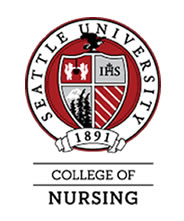
Statement of Philosophy

Seattle University College of Nursing is dedicated to educating and inspiring leaders to transform health care for a just and humane world. As a Jesuit institution, Ignatian pedagogy undergirds our curriculum and supports formation of leaders who are reflective learners with a high standard of professional practice and champions for justice and health equity. We challenge students to develop the compassion, competence and courage necessary to practice in solidarity with those who are poor, underserved, and marginalized. Grounded in our values of empowerment, innovation, caring, social justice, and integrity, students are mentored and coached in critical thinking, ethical reasoning, and clinical judgment.
The faculty and staff of the College of Nursing are committed to fostering a dynamic learning environment, promoting justice for health equity, engaging in innovative and integrative scholarship, teaching excellence, and leadership formation of our graduates. Our students demonstrate acquisition of these values through their commitment to lifelong learning, developing and maintaining clinical competence and engaging in research, scholarship, and clinical practice that, through a trauma-informed lens, redress health care injustices throughout the world. Graduating from a program of study that is innovative, coherent, and sequenced for progressively more advanced learning, Seattle University College of Nursing graduates are equipped to draw upon a variety of resources in providing care to individuals, families, communities, and populations. Accordingly, our graduates emerge as leaders in their profession, committed to teamwork, providing service to society, and contributing to safe, high quality, and accessible health care across the globe.
Furthermore, we embrace and value diversity within our university, faculty, staff, students, and the communities we serve. We endorse and uphold the principle of humility, a lifelong process that requires us to engage in discernment, reflection, critique, and evaluation; to examine and rectify longstanding power differentials between communities and members of the health care team; and to work in partnership with populations we serve to co-create mutually beneficial, respectful relationships. We believe that all humans are spiritual beings with a stance on what it means to be human and humane and a perspective on what ultimately matters or is experienced as sacred.
We believe in a progressive, forward thinking, open stance on learning and curriculum that is globally aware. By drawing upon multiple ways of knowing, we provide students tools crucial to effectiveness in a variety of health care situations and for lifelong learning. Health care and clinical practice must continuously improve through integration of the liberal arts, evidence-based knowledge, technological innovations, scientific discovery, and critical appraisal of evidence derived from and applied back to practice.